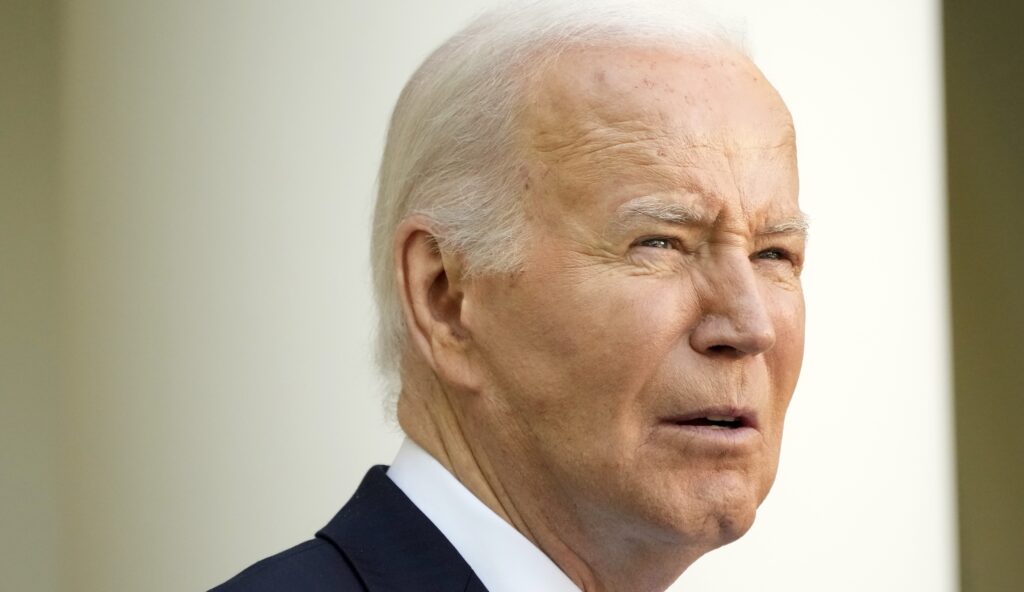A leader who entered the White House in 2021 without a clear set of priorities or steadfast beliefs found himself at the helm of a party heavily influenced by various interest groups. These factions, representing diverse identities such as race, gender, and labor, had distinct and often conflicting demands.
This scenario ultimately led to a presidency that many would deem unsuccessful.
Joe Biden campaigned as a pragmatic moderate who aimed to restore stability following the tumultuous tenure of former President Donald Trump and the chaos brought on by pandemic-related lockdowns. His extensive experience in Washington was presented as an asset that would enable him to govern effectively.
However, instead of maintaining his moderate stance, Biden allowed these interest groups to dictate his administration’s direction. This shift resulted in ideological pursuits overshadowing practical governance, leading to unrestrained spending aimed at appeasing various constituencies within his party.
The Enigma of Biden’s Beliefs
An examination of Biden’s lengthy political career—spanning over three decades in the Senate and eight years as Vice President under Barack Obama—reveals an absence of consistent principles.
As a former chairperson of the Senate Foreign Relations Committee, he exhibited both hawkish and dovish tendencies throughout his career. He initially opposed the Vietnam War but later supported military interventions in Grenada, Panama, and the Balkans. His stance on conflicts has been inconsistent; he opposed the Gulf War before eventually backing it while later criticizing George H.W. Bush for not pursuing regime change against Saddam Hussein more aggressively.
In 2002, he was one of Iraq’s most vocal advocates for regime change but shifted positions by 2005 when he began opposing military involvement there—a reversal he claimed happened immediately after hostilities commenced.
Tracking Biden’s views on other significant issues like abortion rights or taxation reveals similar inconsistencies. While it is common for politicians to adapt their views based on public sentiment or political expediency, Biden’s adaptability stands out remarkably alongside his persistent ambition for higher office.
Biden famously withdrew from the presidential race in 1988 due to allegations of plagiarism but had previously considered runs in both 1980 and 1984 (though never formally submitted paperwork). By 2020—his sixth attempt at securing presidency—he had participated in most major elections over four decades without an incumbent candidate running against him.
Yet what exactly was driving his campaigns? In 1988 he criticized materialism and educational failures; during his bid in 2008 focused on national security issues tied to post-9/11 policies like the PATRIOT Act; while by 2020 his platform became even less defined with promises centered around restoring “the soul” of America.
The Illusion of Stability
During a chaotic election year marked by social unrest and public health crises, many Democrats were not swayed by Bernie Sanders’ progressive agenda but rather sought someone who could provide stability—a role that seemed suited for Biden given his non-ideological approach cultivated through years spent navigating Washington politics alongside serving two terms as vice president.
Unfortunately for voters seeking competence grounded in common sense governance from their leader—the reality fell short.
Biden’s administration oversaw unprecedented spending levels which contributed significantly to inflation rates unseen since previous generations. Additionally, immigration policies led to border challenges that overwhelmed numerous cities struggling with surges in undocumented migrants entering their jurisdictions—all while engaging aggressively with cultural debates surrounding education policy related to gender identity issues through executive actions perceived as punitive towards pro-life advocates within society.
These missteps laid groundwork for potential Democratic losses heading into future elections where inflation concerns coupled with immigration crises emerged among top voter grievances against both President Biden himself along Vice President Kamala Harris’ campaign efforts alike—with some advertisements targeting Harris’ stances regarding transgender rights resonating particularly negatively among constituents wary about extreme positions taken during her tenure thus far.
Moreover commentators have pointed out how unmet promises plagued this administration—from ambitious infrastructure projects like electric vehicle charging networks down rural broadband access initiatives—all remained largely unfulfilled after four years under leadership from this duo despite initial pledges made upon taking office together back then!
A Presidency Influenced
The core issue lies here: A president lacking firm convictions is susceptible not only towards external pressures exerted via special-interest groups—but also finds themselves ensnared within complex webs woven throughout modern progressivism where group identity often supersedes individual meritocracy altogether!
This dynamic reflects broader trends seen across contemporary Democratic Party structures today wherein coalitions formed around shared identities dominate discourse shaping policy outcomes moving forward into future legislative sessions ahead!
Biden’s expansive fiscal policies can be traced directly back toward these influences stemming primarily from lobbying efforts directed toward specific sectors benefiting disproportionately compared against average citizens left behind amidst rising costs associated living expenses overall!
As noted by liberal analyst Dylan Matthews writing at Vox: “From crafting American Rescue Plan early-onwards through Build Back Better initiatives,” it becomes evident how lack prioritization ultimately hindered progress achieved across multiple fronts simultaneously leaving many factions feeling dissatisfied despite attempts made appease everyone involved collectively speaking!
Had there been stronger leadership willing say no certain interests perhaps clearer focus could’ve emerged guiding recovery efforts instead resulting haphazardly piecemeal solutions lacking coherence whatsoever!
The ongoing border crisis further illustrates consequences arising due insufficient resolve displayed addressing immigration reform adequately reflecting desires expressed amongst constituents nationwide yearning comprehensive strategies tackling root causes underlying challenges faced daily basis too!

